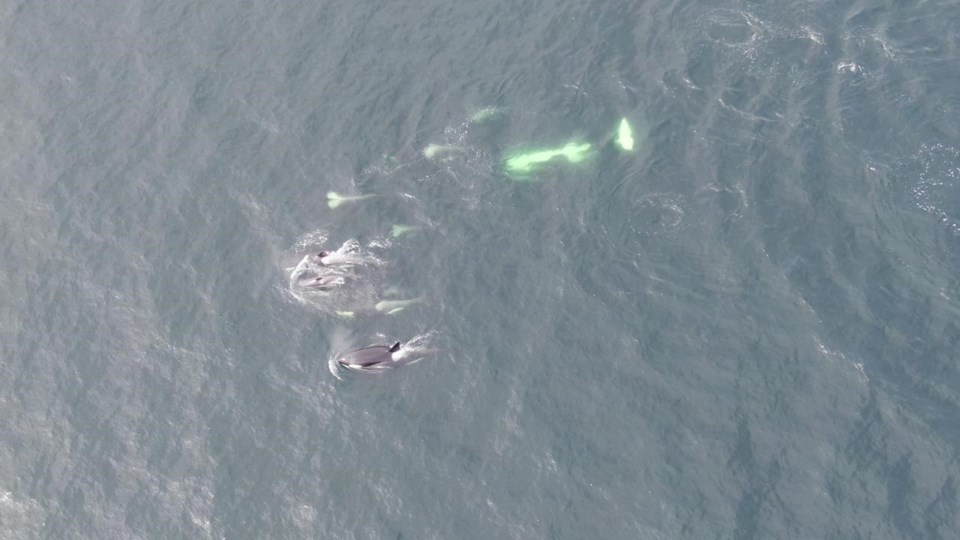VANCOUVER — Toxic chemicals from toilet paper have been found in the bodies of British Columbia's endangered orcas, according to a study conducted by marine scientists.
Researchers at the University of British Columbia analyzed tissue samples from six southern resident killer whales and six Bigg's whales, also known as transient killer whales, stranded along the coast of B.C. between 2006 and 2018.
Dr. Juan José Alava, co-author of the study, said in an interview Thursday that the findings left him and other researchers “shocked and saddened.”
He said the toxic chemical substances could affect killer whales’ hormone systems, disrupting physiological function and making them susceptible to diseases.
The findings were published last month in the journal Environmental Science and Technology.
A news release from UBC said one of the most common pollutants found in the killer whales' bodies was 4-nonylphenol, which is often found in toilet paper and can influence the nervous system.
In addition to toilet paper pulp, it is also used in soap, detergents and textile processing, and is listed as a toxic substance in Canada.
It was the most common single pollutant found in the whales, making up 46 per cent of the total identified chemicals.
Another group of toxic pollutants of great concern is known as “forever chemicals” since they can last for a long time in the environment, said Alava, who is also the principal investigator of the ocean pollution research unit at UBC.
These made up just over half of the contaminants found in the whales, the university said.
"Forever chemicals are the groups of contaminants that can cause immunotoxicity, making marine mammals like killer whales more susceptible to pathologies and emerging infectious diseases," said Alava.
The chemicals are used in food-packaging materials, stains, cookware and fire extinguishers.
One such compound, known as 7:3 FTCA, had not been found in B.C. before, but was the most common of the forever pollutants found in the whales' bodies, Alava said in the UBC statement.
The various toxins leaked into the ocean via sewage treatment plants and industrial runoff before entering the food chain, Alava said.
He said in the interview it was time to call for more "strict regulations and prevention actions" to limit the containment emissions into the oceans, especially since southern resident killer whales are endangered.
"It raised a red flag that we need to continue to monitor and enforce more regulatory efforts to conserve and keep the survival of our southern resident killer whales," said Alava.
He said tissue samples from one pair of southern resident killer whales showed researchers that the pollutants could be transferred from mother whales to their calves, perhaps explaining a low survival rate of killer whales' first-born calves, said Alava.
"Their mother was being exposed to all these toxic plastic mixtures all the time."
Chemical pollution wasn't just of concern because of its impact on marine life, said Alava.
“We are also mammals, breathe the air and eat the salmon as well. Prevention is better than cure; we need to look for a precautionary approach to avoid the emission of chemicals into the environment,” said Alava.
This report by The Canadian Press was first published Jan. 12, 2023.
This story was produced with the financial assistance of the Meta and Canadian Press News Fellowship.
The Canadian Press



